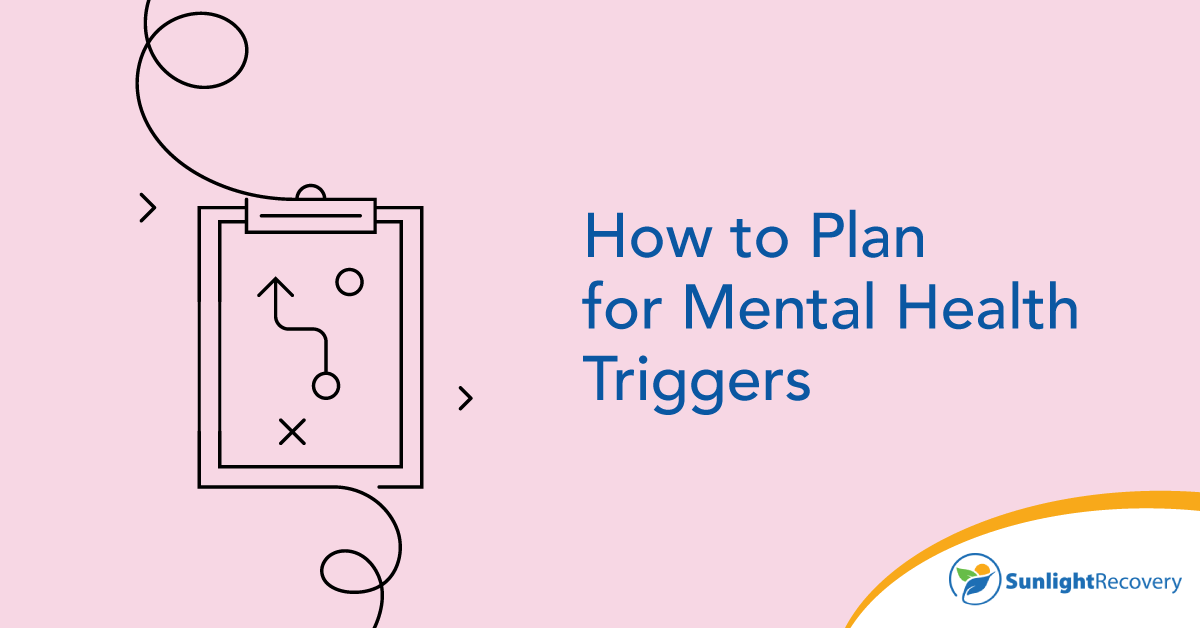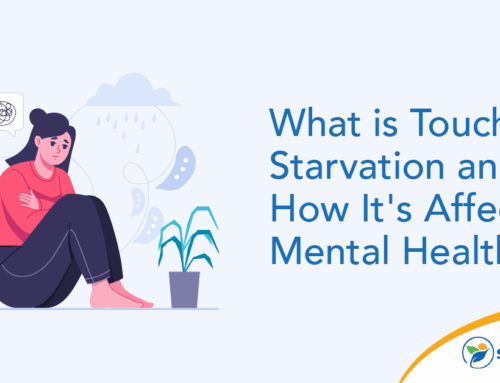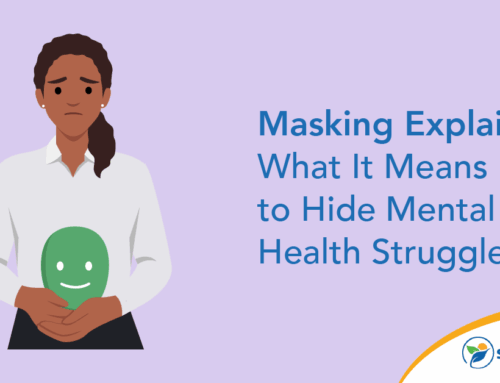If you’ve ever had a strong negative emotional reaction to a topic, situation, environment or conversation, you’ve likely been triggered. Triggers can set off many reactions, including tears, stress, anxiety and other mental health struggles. While these feelings can be extremely overwhelming, there are several approaches you can take to cope with urges. One of the most significant methods is planning ahead. This article provides insight on how to identify personal triggers and develop strategies that make it easier to cope. By planning, you can reduce the impact of mental health issues when these instances occur.
Understanding Triggers
Approximately 1 in 3 adults struggles with some type of anxiety disorder. Anxiety can manifest into triggers, which differ from one person to another. A trigger is anything that prompts an increase in intense emotional or physical symptoms and appears as either internal or external responses.
Internal triggers come from inside, such as a memory or an emotional event. For example, riding in a car with someone who’s driving fast may remind you of a time you were speeding and became involved in an automobile accident. As a result, your heart may start pounding, and you may feel a sense of panic. Negative triggers may also cause a relapse of substance abuse. Other common internal triggers may include:
- Anxiety
- Anger
- Feeling overwhelmed
- Pain
- Muscle tension
- Loneliness
- Sadness
External triggers are a result of something in your environment. They may be tied to a specific person or place or even to a normal situation. Eternal triggers include:
- A movie or television show
- An argument with a friend or spouse
- Time of day
- Sounds
- Locations
- Changes in relationships
- Smells associated with a negative experience
Identifying Personal Triggers and High-Stress Events
Because triggers are tied to past trauma, your emotions tend to be the best indicator of a perceived threat. To identify your triggers, consider your reactions to certain situations. Think about what makes you feel that way, who was involved and when it happened. Look for any patterns, such as similar situations that have caused responses. Therapy or counseling can also help identify deeper issues that might be difficult to recognize on your own.
Strategies and Support Plans for Coping With Urges
It’s impossible to change your past and the events that cause stress and anxiety, but there are many effective ways to overcome urges from triggering events. Instead of placing focus on the things that cause personal triggers, learn how to self-soothe and improve your reactions. These strategies include:
- Facing your triggers. Purposefully put yourself in a triggering situation. Focus on your emotions and behavior and how your body and mind react. Take deep breaths, accept the feelings and try to understand what’s causing them. These mindfulness techniques can help you stay grounded in the present and redirect your focus from stressful or disturbing thoughts.
- Using grounding techniques. One calming method, called the 5-4-3-2-1 method, uses the five senses to help shift your focus from a triggering event. Developed by psychologist Marsha Linehan, the method takes the following approach: Focus on five things you can see, four things you can touch, three things you can hear, two things you can smell and one thing you can taste. This method works because it shifts focus from the emotional right side of the brain to the left, more rational side.
- Engaging in role-play. Take advantage of group meetings, or ask a friend to assist in role-playing situations that might trigger an urge to react. Start by playing yourself and demonstrating how you’d respond. Swap roles and play out the same or a different scenario. You can learn by watching how someone else would handle the event.
- Practicing for social situations. Plan for events and situations where you know you’ll be coping with urges, such as shopping for groceries or attending a holiday party or a family gathering. Rehearse the problem with a trusted friend until you feel you can confidently handle the situation without reacting.
- Setting boundaries. If you’re having trouble managing specific triggers, establish physical and verbal boundaries. Know what you’re comfortable with, and try to avoid situations that could cause you duress.
- Seeking professional help. Talking through your triggers may help you learn to deal with emotions. Several medications can also provide relief for triggering events, including antianxiety medications, such as alprazolam and lorazepam. Additional medications may include propranolol or SSRIs.
Building a Mental Health Toolkit for Difficult Moments
A mental health toolkit or emotional wellness toolkit is a collection of resources and information designed to support you through any mental health crisis. It can be extremely helpful when coping with urges. You can customize your toolkit specifically to your situation and include anything that makes it easier to get through difficult feelings. Items you might want to include in your toolkit include:
- Social relationships. Build friendships and relationships with trusted individuals you can turn to when you’re in need.
- Comfort items. This could be anything from a weighted blanket or an old stuffed animal to music or pets. Any physical item that provides a sense of peace works.
- Affirmations. Find quotes of positive affirmations that inspire you to be better. Write these on sticky notes and place them in strategic locations in your environment. These notes could be enough to shift your mood when you’re struggling.
- Crisis hotline numbers. Having crisis numbers programmed into your phone can be helpful when you need to reach out to another person for help.
Tips for Self-Care During Challenging Times
- Exercise. Exercise is an excellent way to deal with stress and make it easier to deal with stressful situations. Choose an activity you love. Outdoor exercise provides an additional boost.
- Meditation. Meditation and deep breathing give your body time to relax, turn inward and stay grounded. If you’re not sure where to start, consider downloading an app such as Headspace.
- Sleep. Sleep allows the body to heal and recover during stressful situations. Adults should try to get 7 to 9 hours of sleep each night for optimal health.
- Hobbies. Take up new hobbies and interests to keep your mind occupied. Learn to paint, sign up for a pottery class or check your area for book clubs that interest you.
Reach Out for Help
If you or someone you love struggles with triggers or mental health issues and wants to learn how to resist urges, reach out to Sunlight Recovery for help.







